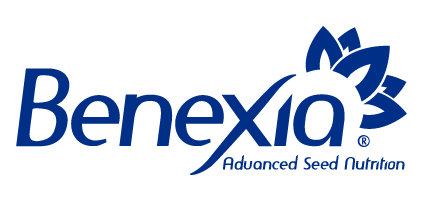Cardiovascular disease (CVD) is the main cause of death worldwide, accounting for 10 to 30% of all deaths. Although CVD has been primarily a problem in developed countries, it’s becoming a growing concern in developing countries and has become the main cause of death in many of them (1).
Coronary heart disease, a type of cardiovascular disease, is caused by build-up of fat deposits on the walls of the arteries around the heart. Research has shown that one group of dietary fats, omega-3 fatty acids which include alpha-linolenic (ALA), eicosapentaenoic (EPA) and docosahexaenoic (DHA) acids, can actually protect against cardiovascular diseases and its risk factors (2).
Several studies have shown that ALA consumption can reduce the risk of death from coronary heart disease as well as heart attack. Regarding omega-3 fatty acid supplement capsules, in the largest randomized controlled trial to date, consisting of over 11,000 patients with coronary heart disease, those who took omega-3 supplements daily had a 15% reduction in death, heart attack, and stroke incidence, a 20% reduction in death from any health-related cause, and a 45% reduction in sudden death from a heart attack in comparison with placebo over 3.5 years of follow-up. In addition, triglyceride levels decreased by 4% (3). This suggests that consuming omega-3 fatty acids may reduce the risk of death from heart disease in both men and women. Omega-3 consumption has also been shown to reduce resting blood pressure modestly and decrease body fat levels, both of which can improve overall heart health.
There are several theories on how omega-3 fatty acids work to improve overall cardiovascular health, which include potentially increasing:
- Good cholesterol (high-density lipoprotein, HDL)
And decreasing:
- Triglycerides
- Platelet aggregation which can prevent coronary arteries from getting clogged
- Abnormal heart rhythms
- Atherosclerosis
- Inflammatory markers in the body
Although it’s unclear whether plant-derived omega-3 fatty acids (ALA) or fish-derived omega-3 fatty acids (DHA and EPA) are more important for the heart, both should be a part of a healthy diet. Evidence suggests that 1.5 to 3 g/day of ALA is beneficial, either through plant-based foods or supplements.
The American Heart Association recommends including at least 2 servings of fatty fish per week in a healthy diet. Including vegetable oils, such as chia oil, and foods such as walnuts and chia seeds, all of which are good sources of ALA, is also recommended (4). When possible, omega-3 fatty acids should be consumed through food sources.
Benexia® Chia Oil is an incredibly nutrient-dense ingredient containing > 63% ALA. It’s also naturally high in antioxidants including tocopherols and phytosterols. Benexia® Chia oil is gluten-free, 100% pure and natural, free of contaminants, vegetarian and Kosher.
A dietary supplement containing 1 gram of chia oil will contain over 600 mg of ALA and can carry the claim “High in Omega-3 ALA”, according to Omega-3 Nutrient Content Claim regulation per the FDA.
The following are examples of structure/function claims regarding ALA and heart health that have been reviewed and confirmed to be in compliance with dietary supplement** regulations for use on Dietary Supplement labels marketed in the U.S.:
ALA improves heart health
ALA promotes cardiovascular health
ALA supports heart health
** “These statements have not been evaluated by the Food and Drug Administration. This product is not intended to diagnose, treat, cure or prevent any disease.”
- Suri, S., Passi, J. S., Goyat, J. Chia Seed (Salvia Hispanica L.) – A New Age Functional Food. 4thInternational Conference on Recent Innovations in Science Engineering and Management. March 20, 2016.
- Koh AS, Pan A, Wang R, Odegaard AO, Pereira MA, Yuan JM, Koh WP. The association between dietary omega-3 fatty acids and cardiovascular death: the Singapore Chinese Health Study. Eur J Prev Cardiol. 2015 Mar;22(3):364-72.
- Dietary supplementation with n-3 polyunsaturated fatty acids and vitamin E after myocardial infarction: results of the GISSI-Prevenzione trial. Gruppo Italiano per lo Studio della Sopravvivenza nell’Infarto miocárdico. Lancet. 1999; 354:447–455.
- Kris-Etherton PM, Harris WS, Appel LJ; American Heart Association. Nutrition Committee. Fish consumption, fish oil, omega-3 fatty acids, and cardiovascular disease.Circulation. 2002; 106:2747–2757.


